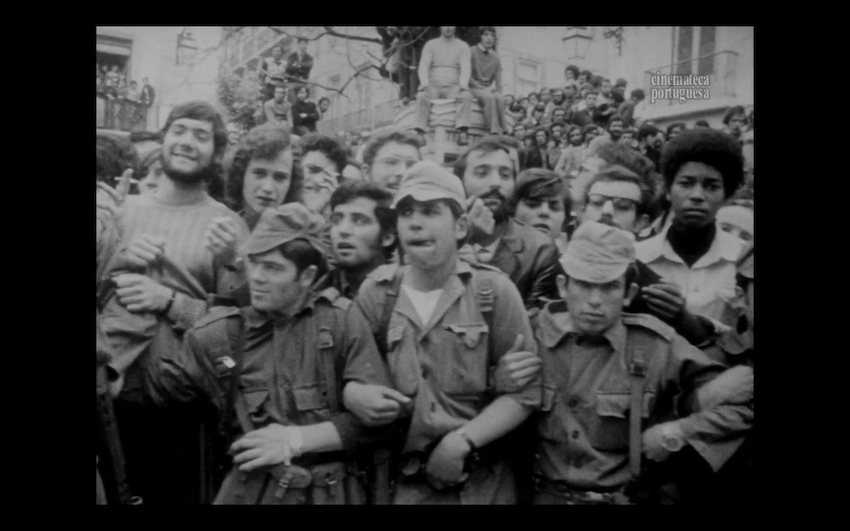
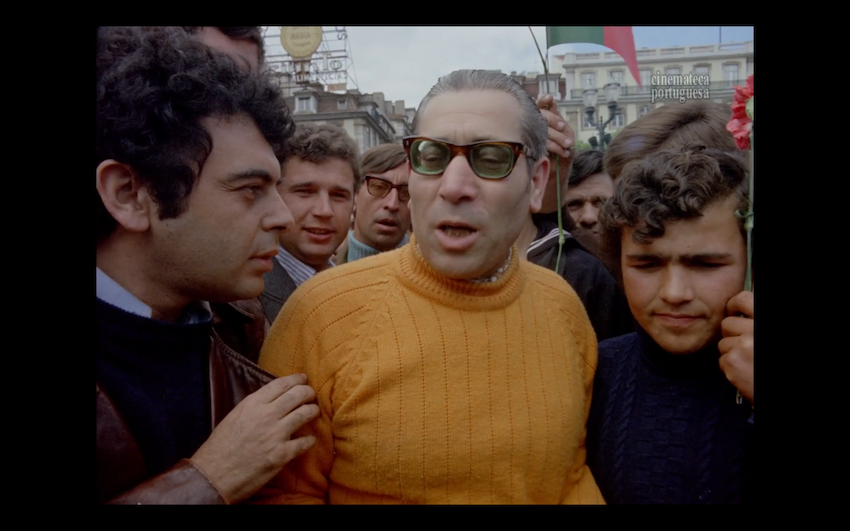
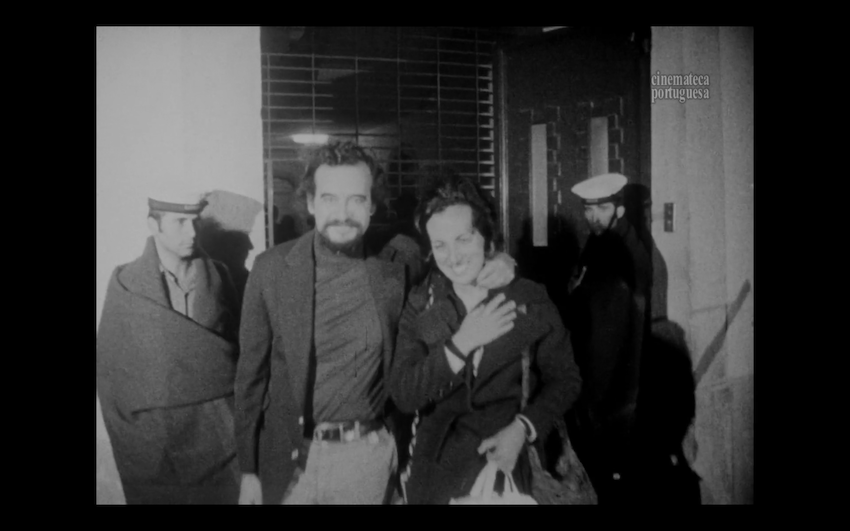
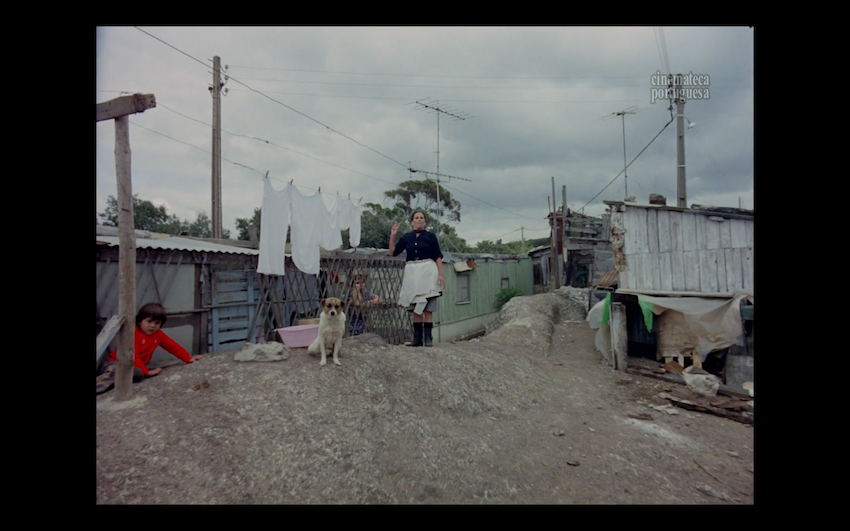
sobre As Armas e o Povo (Colectivo Trabalhadores da Actividade Cinematográfica, 1975) – texto Júlia Nunes
(Folha de sala do filme visto na oficina e depois programado para a escola)
Pouco haverá de diferente entre a emoção que emana de cada testemunho deste filme e da celebração do nascimento de alguém, talvez tal se deva ao facto do 25 de abril de 1974 ter sido o “(re)nascer” de um país.
“As Armas e o Povo” é um filme de 1975, realizado, contrariamente à maioria dos filmes, por um conjunto de cineastas. Este incide sobre os primeiros dias da liberdade: acompanhando, auxiliado por imagens de arquivo, a Revolução dos Cravos, até ao seu clímax no dia 1 de maio de 1974.
Neste filme, que antes de filme é uma memória coletiva, acompanhamos aqueles que foram alguns momentos-chave da viragem democrática por que Portugal passou. Sempre sob o ponto de vista cru e imediato do coletivo de cineastas “Trabalhadores da Actividade Cinematográfica” que correu as ruas, bairros tentando captar aqueles que foram os primeiros sintomas da liberdade para a sociedade lisboeta.
Desde a libertação de presos, a entrevistas aos habitantes, ao discurso de Mário Soares e Álvaro Cunhal no 1º de Maio; tudo foi gravado e eternizado, naquelas que viriam a ser algumas das mais impactantes imagens da época.
Esta é uma obra coletiva a pensar num coletivo e sai às ruas precisamente com essa ideia. Com esta ânsia de saber como foram passados aqueles 48 anos, se bem se mal; que expectativas há para os próximos tempos; que receios que medos. Também esta premissa é revolucionária, é a primeira vez em meio século que algo é feito e é para o povo português: não só é para este, como é sobre este e este é quem brilha aqui. Esta massa popular tem o poder de fazer destas gravações algo sobre si e para os seus, de dizer nestas gravações, aquilo que lhe foi privado durante anos: era a liberdade a passar por ali. “Esta é a madrugada que eu esperava / O dia inicial inteiro e limpo / Onde emergimos da noite e do silêncio / E livres habitamos a substância do tempo” (Sophia de Mello Breyner)
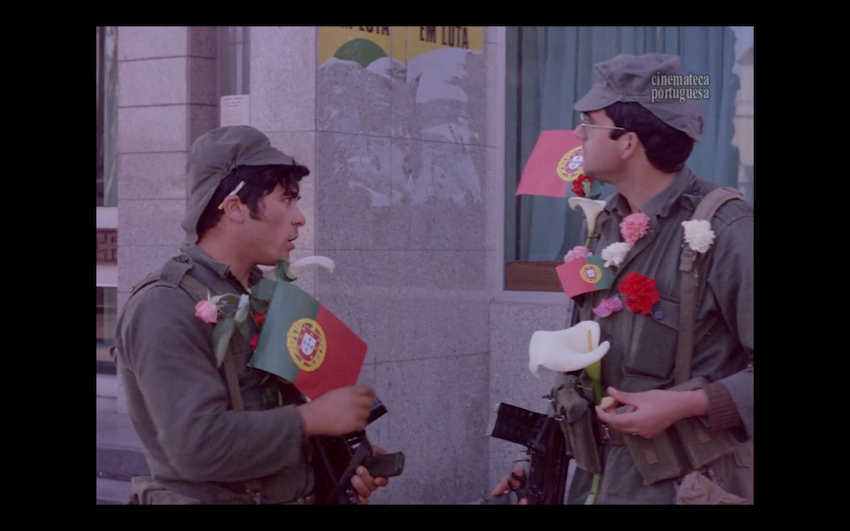
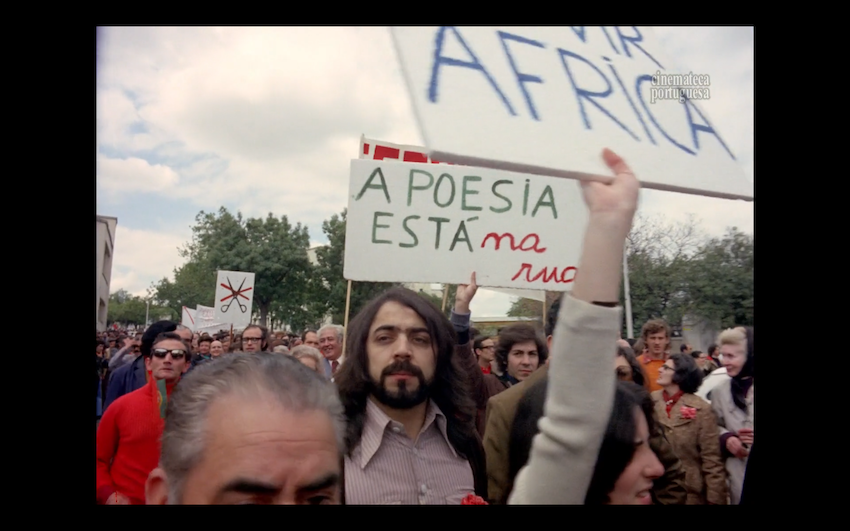
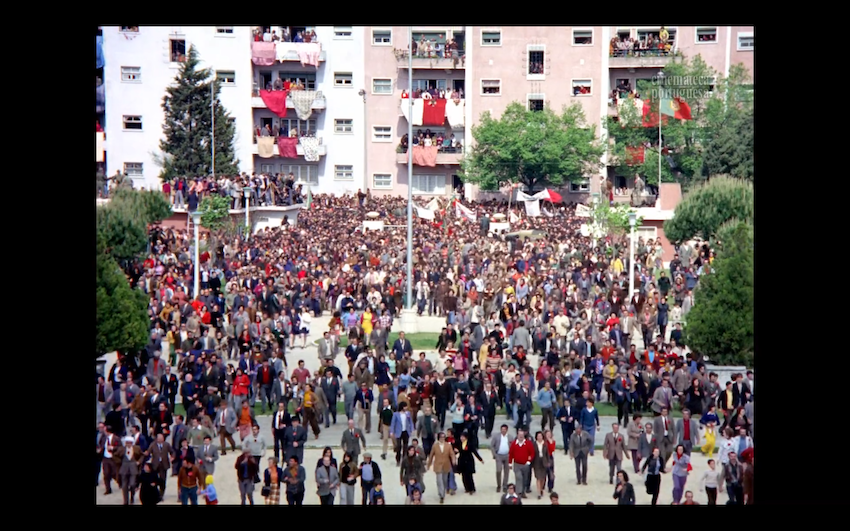
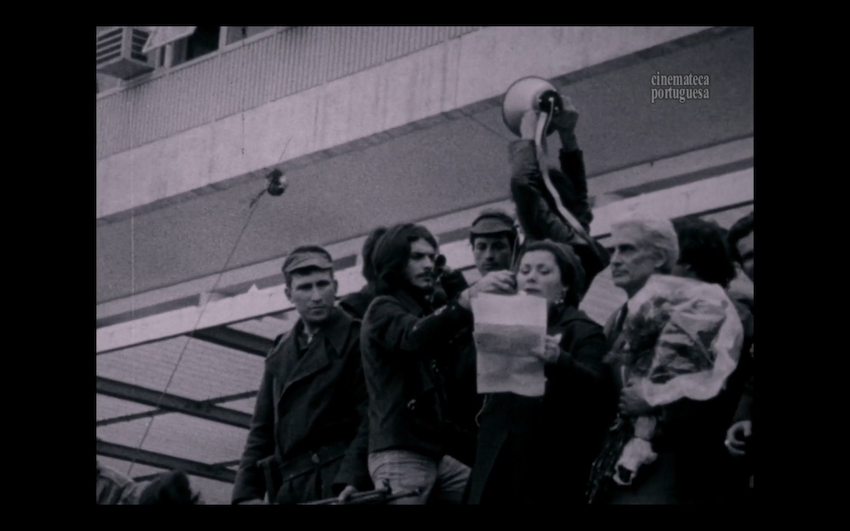
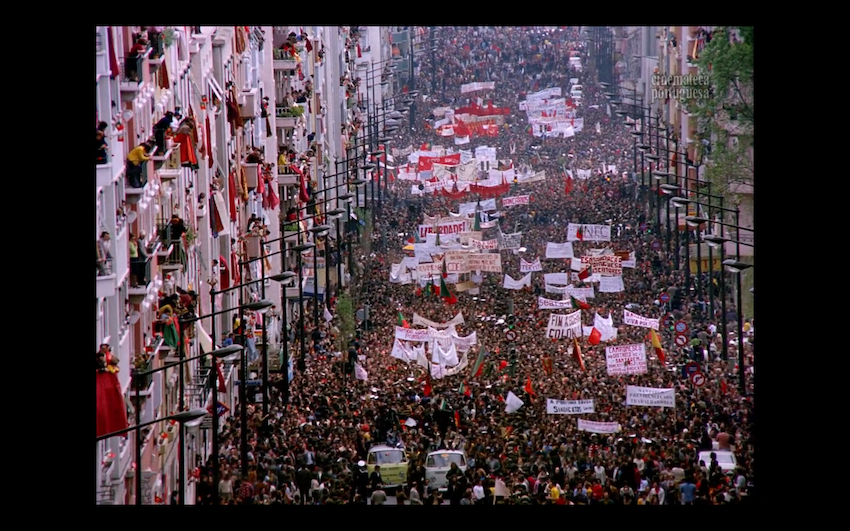
sobre As Armas e o Povo ( colectiv film 1975) – text by Júlia Nunes
(text written for a school projection, about this documentary,first seen in the workshop)
There is little difference between the emotion that emanates from each testimony in this film and the celebration of someone’s birth, perhaps because 25 April 1974 was the ‘(re)birth’ of a country.
‘As Armas e o Povo’ is a film from 1975, made, unlike most films, by a group of filmmakers. It focuses on the first days of freedom: following the Carnation Revolution, with the help of archive footage, right up to its climax on 1 May 1974.
In this film, which, before being a film, is a collective memory, we follow some of the key moments in Portugal’s democratic turnaround. Always from the raw and immediate point of view of the collective of filmmakers ‘Trabalhadores da Actividade Cinematográfica’ (Film Activity Workers), who toured the streets and neighbourhoods trying to capture what were the first symptoms of freedom for Lisbon society.
From the release of prisoners, to interviews with residents, to Mário Soares and Álvaro Cunhal’s speech on the 1st of May; everything was recorded and immortalised in what would become some of the most impactful images of the time.
This is a collective work with a collective in mind and it takes to the streets precisely with that idea. With this desire to know how those 48 years went, whether well or badly; what expectations there are for the times to come; what fears.
This premise is also revolutionary, it’s the first time in half a century that something has been made for the Portuguese people: not only is it for them, but it’s about them and they are the ones who shine here. This mass of people has the power to make these recordings about themselves and for their own, to say in these recordings what they have been deprived of for years: it was freedom passing through there. ‘This is the dawn I’ve been waiting for / The initial day whole and clean / Where we emerge from the night and the silence / And free we inhabit the substance of time’ (Sophia de Mello Breyner)
